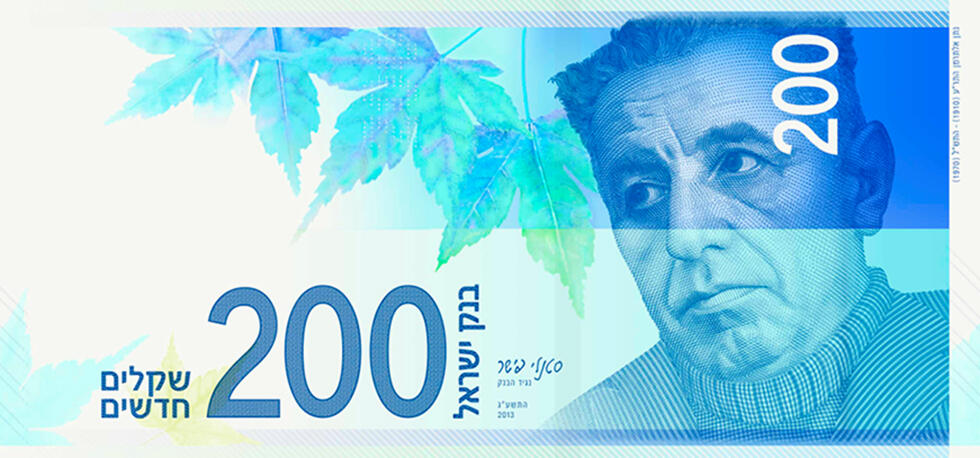Getting your Trinity Audio player ready...
Prime Minister Benjamin Netanyahu instructed top officials on Thursday to urgently discuss the immediate discontinuation of the 200-shekel banknote, the highest denomination of Israeli currency.
The meeting, set to include Finance Minister Bezalel Smotrich, Bank of Israel Governor Prof. Amir Yaron, Prime Minister’s Office Director-General Yossi Shelley and leaders from the Tax Authority and the Task Force for Combating Crime in the Arab Community, aims to address the elimination of the 200-shekel note as a measure to curb illicit cash flows.
A team of nine economists proposed a comprehensive plan to significantly intensify the fight against black market money, which they estimate could increase state tax revenues by 90-115 billion shekels ($24-31 billion) by 2030. The plan includes withdrawing the 200-shekel note within a short timeframe, allowing only a brief period for exchange. This is expected to hinder criminal organizations from disposing of millions of notes.
In the medium term, the plan calls for a drastic reduction in cash use, aiming to eliminate cash transactions altogether within a few years, with payments to be made exclusively through bank transfers or credit cards.
The initiative also includes a new "voluntary disclosure" campaign, which would allow tax evaders to avoid prosecution if they declare previously undeclared income. Additionally, the plan proposes lowering the threshold for transactions requiring pre-approval from the Tax Authority from 25,000 shekels ($6,750) to 5,000 shekels ($1,350), a move that has drawn criticism from business groups who argue it would burden the payment system.
The proposed measures are intended to compel tax evaders, including criminal elements, to either deposit or exchange their cash at banks, identifying the sources of the funds. Some may also be forced to admit to tax evasion and pay substantial taxes on previously unreported income under the voluntary disclosure program.
Similar steps have been implemented in other countries. In parts of China, the use of cash has been completely banned in certain cities.
The plan includes several additional measures:
- Expanding reporting obligations for citizens with income to the tax authorities.
- Launching a joint enforcement program involving all relevant agencies, including the Tax Authority, the Anti-Money Laundering Authority, the police, the prosecutor’s office and the Counter-Terrorism Economic Warfare Headquarters.
- Utilizing artificial intelligence to identify tax evaders.
- Increasing oversight of non-bank financial entities, including currency exchange providers, which handle substantial amounts of black market money.
- Banning the holding of large amounts of cash alternatives, such as gold, silver, medals and coins.


